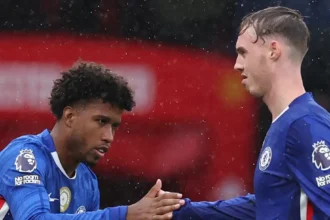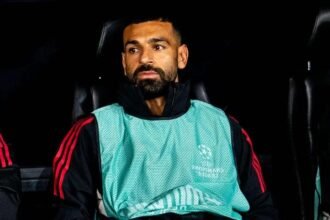Manchester United’s latest move under Sir Jim Ratcliffe’s leadership is raising eyebrows—and not just among rival clubs. As part of an ongoing effort to slash costs, the club has quietly shelved a long-standing pre-season tradition: the ceremonial exchange of gifts between clubs ahead of friendlies. Leeds United, who face the Red Devils in Stockholm on July 19, will be the first to experience this change.
This shift marks yet another visible sign of the cost-cutting regime introduced by Ratcliffe, who, despite only holding a minority stake, now oversees all football operations at Old Trafford. His tenure, which began with optimism, has taken a harsher tone over recent months. Cuts have ranged from mass redundancies to the end of complimentary staff meals and increased ticket prices—all amid growing scrutiny over the direction of the club.
Now, even small ceremonial traditions are on the chopping block.
Shedding the Formalities
According to talkSPORT’s Ben Jacobs, the club will no longer present customary pre-match gifts to opponents during their summer friendlies. These gestures—often customized memorabilia, shirts, or commemorative items—have long served as tokens of goodwill between clubs, particularly when matches are held abroad.
United insiders, however, have framed the move as a pragmatic one. Facing familiar English opposition such as Leeds, West Ham, Bournemouth, and Everton, the club reportedly sees the tradition as outdated and unnecessary. A source close to United described the change as a shift away from “needless ceremony and pomp.”
The alternative? A planned drinks reception for club executives—starting with Leeds officials in Stockholm. It’s a calculated pivot from symbolic gestures to personal hospitality, aimed at maintaining professional relations without the added expense.
Underlying Financial Pressure
While symbolic in nature, the decision underscores the deeper financial realities at United. Failure to qualify for European competition has left the club’s summer budget under strain. With recruitment plans already constrained, every non-essential cost is being re-evaluated. What may seem like a minor gesture externally reflects a broader, relentless strategy internally: nothing is sacred when margins tighten.
The tradition, though seemingly trivial, had its place in building soft diplomacy across clubs. For many, especially in overseas friendlies, it represented respect, professionalism, and club stature. Dismissing it outright—especially without clear communication—could risk alienating peers or fostering a perception of aloofness.
Whether this move becomes standard practice or is adjusted depending on the opposition remains to be seen. The real test may come when Fiorentina visit Old Trafford in August—an international opponent where tradition might carry more weight.
Ratcliffe’s approach to restructuring Manchester United has been swift, and often stark. This latest step might be modest in scale, but symbolically, it reinforces a message fans and insiders alike are beginning to accept: sentimentality has little place in the new regime.











